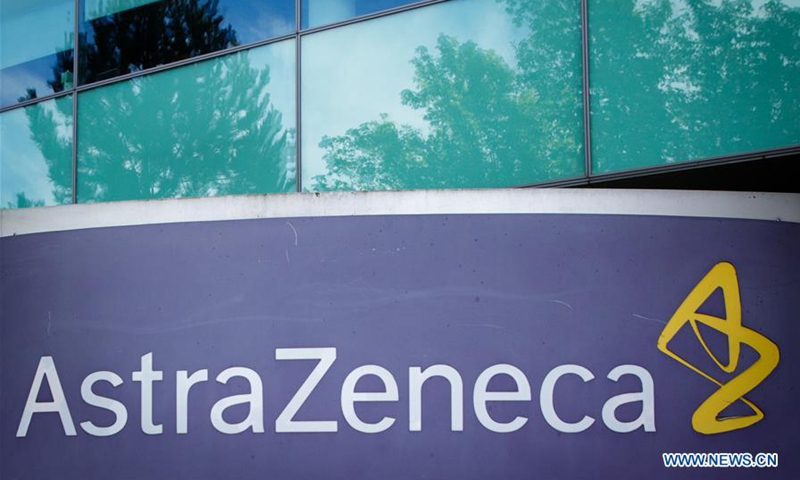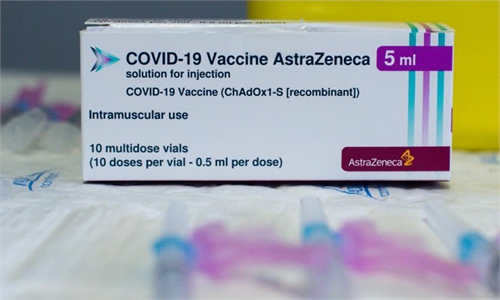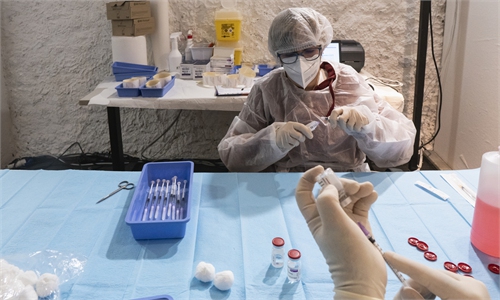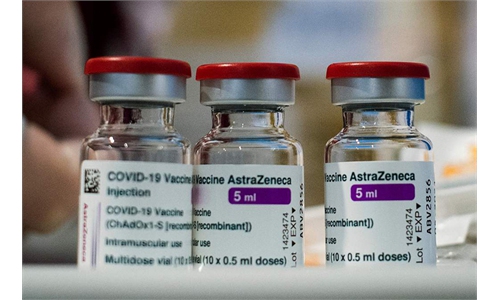AstraZeneca backed by WHO
Experts encourage use of vaccine despite blood clot fears

Photo taken on May 18, 2020 shows a logo in front of AstraZeneca's building in Luton, Britain. AstraZeneca, which is developing a possible vaccine against COVID-19 in partnership with the University of Oxford, on Wednesday put on hold the phase-3 trial of its vaccine following an unexplained illness in one trial participant in Britain. (Photo by Tim Ireland/Xinhua)
World Health Organization (WHO) experts on Wednesday recommended countries continue to use the AstraZeneca vaccine, but said they were looking into the jab's safety after a slew of countries suspended its use over health fears.The WHO, Europe's medicines regulator and AstraZeneca itself have repeatedly said the vaccine was safe after several countries reported feared links with blood clots or brain hemorrhages.
The suspensions have marred the global vaccine drive aimed at ending a year-long pandemic that has already killed more than 2.6 million people around the world since it first emerged in late 2019.
But the WHO's vaccine experts said Wednesday it was still better to take the AstraZeneca vaccine than not - adding that it was looking into available data on the jab.
"The WHO Global Advisory Committee on Vaccine Safety is carefully assessing the latest available safety data," the UN health agency said.
"At this time, WHO considers that the benefits of the AstraZeneca vaccine outweigh its risks and recommends that vaccinations continue."
The experts' recommendation echoed a similar statement from the European Medicines Agency on Tuesday advising countries to continue using the vaccine, saying there was no link with clots.
The agency said that it is holding an extraordinary meeting Thursday to finalize its conclusions on the blood clot issue and "make any necessary recommendations for further action."
Several countries from France to Venezuela to Indonesia said they would not use the vaccine after several reports emerged of blood clots and brain hemorrhages in people who had received the vaccine.
The British-Swedish jab has been dogged by controversy from early on in its rollout, after some countries initially recommended it for people over the age of 65 and then backpedaled, saying there was insufficient data for people in the age group that had received the shot.
The firm later sparred with the EU, which accused it of failing to fulfill vaccine contracts after the bloc's immunization campaign came under fire for a sputtering start.
The head of the EU Commission on Wednesday threatened to introduce export curbs to stop suppliers within the EU from sending jabs outside the bloc to ensure "reciprocity" from other vendors.
Ursula von der Leyen singled out Britain, which she accuses of operating a de facto export ban to achieve its own vaccine success at home, which London furiously denies.
She said the EU was "still waiting" for its AstraZeneca orders to come out of production sites in Britain, despite the fact that 10 million doses from other manufacturers had entered the UK from the EU.
AFP



